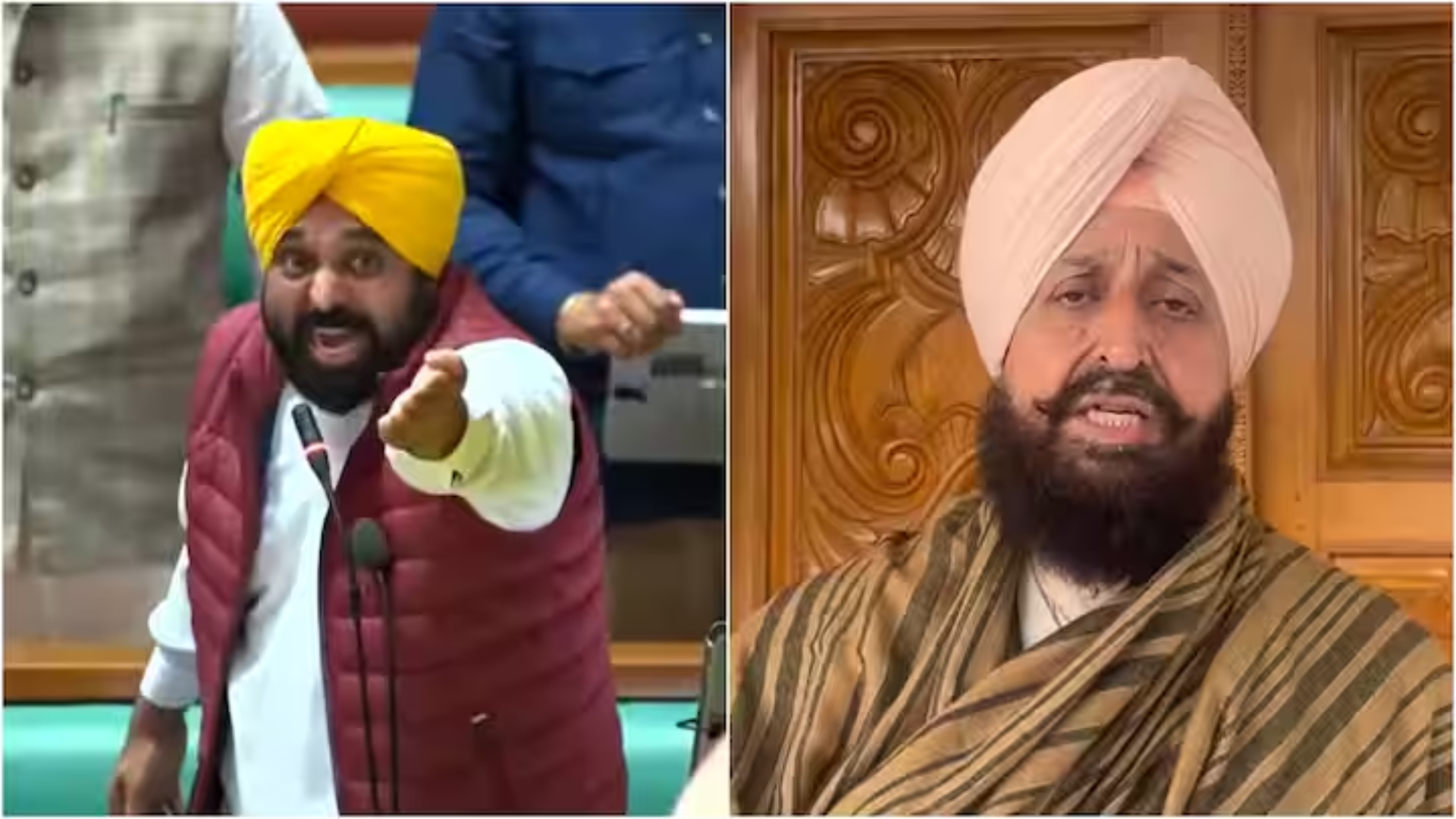The Punjab Assembly witnessed tumultuous scenes on Monday as Chief Minister Bhagwant Mann found himself embroiled in a heated exchange with Congress leader and Leader of Opposition (LoP) Partap Singh Bajwa during discussions on the state budget. The altercation ensued after CM Mann made a provocative request to the Governor, proposing to “lock” the opposition members inside the assembly.
Prior to commencing the budget deliberations, CM Mann handed over an envelope to the governor, claiming it contained a gift. To the surprise of many, the envelope held a lock and a key, which Mann intended to use as a symbolic gesture to confine the opposition during the discussion.
The proposal triggered a fiery confrontation between CM Mann and LoP Bajwa, with Mann expressing frustration and urging Bajwa to advise the Congress leadership against allocating seats to the Aam Aadmi Party (AAP) in the upcoming Lok Sabha elections. Asserting his position, Mann highlighted his relationship with prominent Congress figures, Rahul Gandhi and Sonia Gandhi, implying that the Congress should reconsider their alliance with AAP.
Amid the escalating tension, the assembly was adjourned for 15 minutes to restore order.
Speaking to reporters after the incident, LoP Partap Singh Bajwa condemned Mann’s actions, labeling them as inappropriate and disrespectful. Bajwa criticized Mann for his derogatory remarks and accused him of attempting to silence the opposition.
Furthermore, Bajwa revealed that during the heated exchange, CM Mann challenged him to contest against him in the elections, to which Bajwa readily accepted, vowing to stand against Mann wherever he chooses to contest.
The AAP and the Congress, allies in the INDIA bloc, had previously agreed to a ‘friendly fight’ in Punjab, given the Congress’s status as the opposition in the state. This agreement followed a seat-sharing arrangement between the two parties in Delhi, Haryana, Goa, Chandigarh, and Gujarat, where each party would contest specific constituencies.
The Lok Sabha polls, anticipated to be held in April-May, are poised to be highly contentious, with alliances and political strategies shaping up amidst fierce competition.




